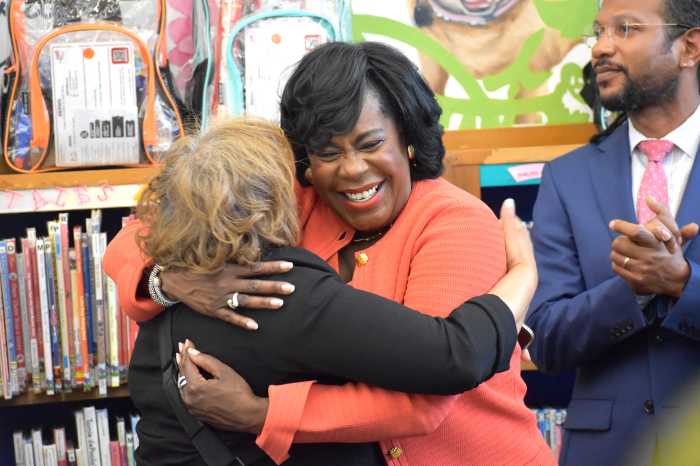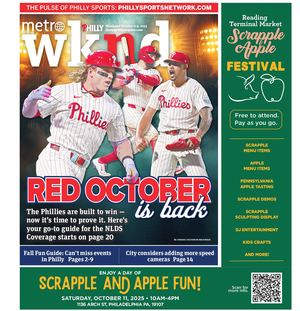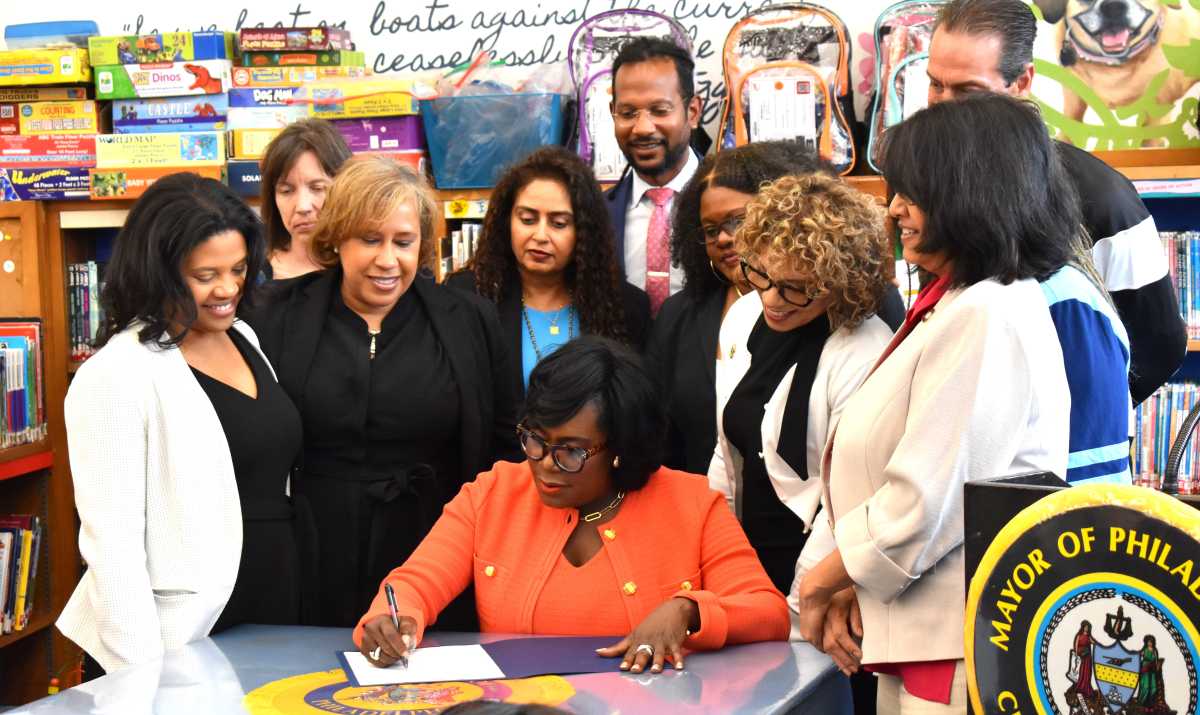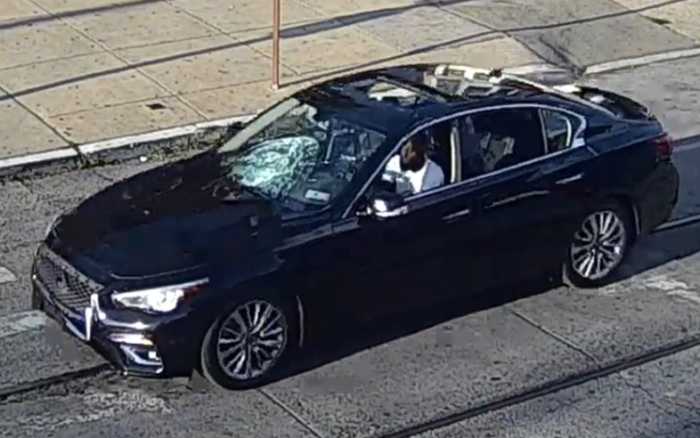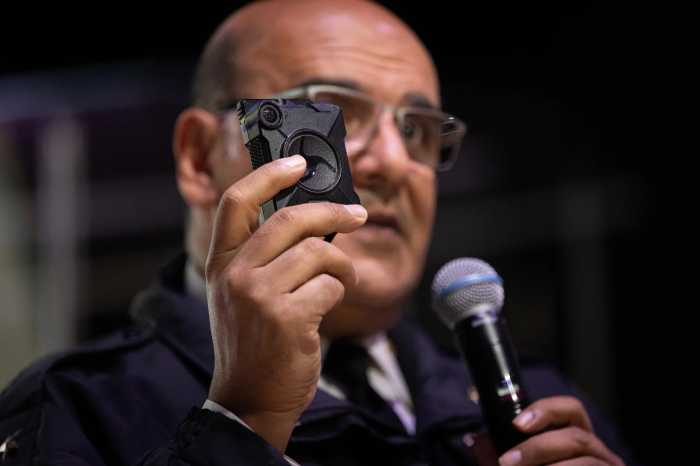In two months, medical providers and those offering food and water to homeless people will need to acquire permits and abide by a set of restrictions in much of Kensington, after Mayor Cherelle Parker signed a controversial bill Wednesday.
Moments before she signed the legislation, at the Kensington Library, an opponent of the measure interrupted remarks from elected officials. “People are going to die because of this bill,” she said.
Harm reduction advocates have argued that the limitations will make it harder for outreach workers to provide wound care and other treatment for unhoused drug users. Longtime residents say the trucks and vans attract groups that discard needles and expose their children to drug use and unsanitary conditions.
Parker invited the heckler to ask a question. Approached after the event, the individual identified herself to Metro as Siena, withholding her last name and declining further comment.
“This bill is sentencing people who are most vulnerable to die,” Siena told the mayor and other leaders. “The replacements of it are not adequate. They’re not meeting people where they live. It’s cruelty.”
Parker and the legislation’s sponsor, City Councilmember Quetcy Lozada, repeatedly asserted that the regulations are not intended to strip care from people with addiction and mental health issues.
“In no way, shape or form is the City of Philadelphia not trying to treat people with the care, dignity, compassion and empathy that they deserve,” Parker said. “We are not taking away anything from anyone.”
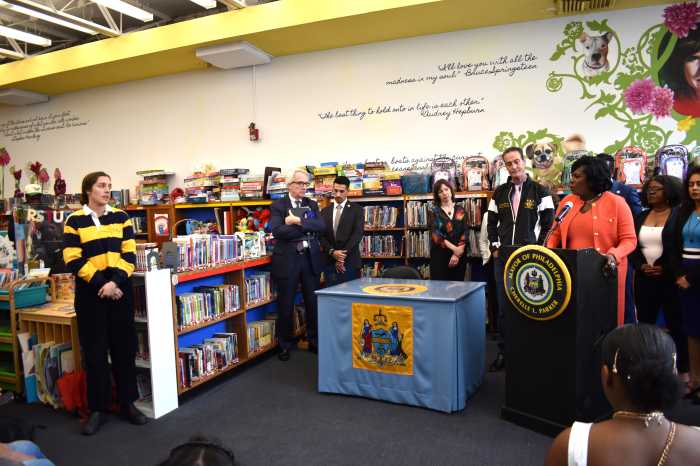
Beginning July 27, mobile medical providers in Lozada’s 7th Council District will be mandated to apply for an annual permit to operate. Organizations will need to prove they have the proper supplies and that care is overseen by a health care practitioner, according to the bill.
Mobile units will only be allowed to set up at 265 E. Lehigh Avenue — the former Police Assisted Diversion Program building and the home of Parker’s new Kensington Wellness Support Center — and between 11 p.m. and 6 a.m. on Allegheny Avenue from Kensington Avenue to F Street.
Emergency medical technicians, overdose responders, community crisis teams and health department vaccination providers are among those exempted from the regulations.
Under the legislation, trucks, vans and cars providing food, water and other non-medical services will also need a permit. Vehicles will not be able to stay in one place for more than 45 minutes and must then relocate at least 1,000 feet away.
Violators could face fines of up to $1,000 and have their licenses revoked. Parker and city Public Safety Director Adam Geer said municipal departments are still working to finalize enforcement and permitting mechanisms.
“It was like the wild, wild west up in these communities,” said Geer, who has been at the forefront of the administration’s efforts in Kensington. “No rules. No regulations. No understanding what’s being fed, whether it’s the right temperature. No understanding of anything.”
Geer said Temple University and Merakey are among the providers already slated to operate out of the Lehigh Avenue center’s parking lot, which will have 24/7 security. The wellness facility will have nurses, doctors, legal assistance, housing specialists and showers on site, he added.
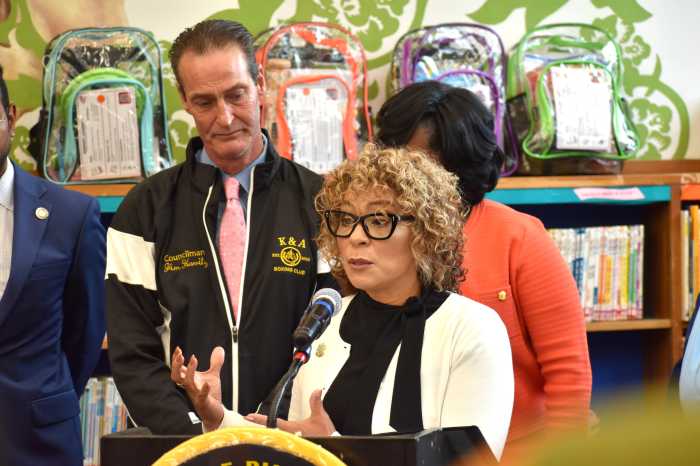
“This is a critical moment to celebrate,” said Sonja Bingham, a Harrowgate resident and supporter of the bill. “For once, our government is not just listening but acting in support of our community that has been neglected, misunderstood and often vilified for simply having an opinion.”
Earlier this month, Councilmember Mike Driscoll introduced a similar measure to limit mobile services in his 6th District, which is based in the Northeast and also covers part of Kensington.
Councilmember Jimmy Harrity, a Kensington resident, said he hopes the regulations, combined with other strategies, restore a sense of safety to the neighborhood.
“This is a win for the community,” he added. “This is a win for the people who are suffering. Everybody’s still going to get the services that they need.”
Parker cast the move as a part of her larger initiative to create a “wellness ecosystem” for people in addiction. The approach also incorporates Riverview Wellness Village, a recently opened treatment facility located on the city’s Northeast Philadelphia jail campus.
“It doesn’t exist, so we’re building it from the ground up,” she said. “We’re building a system and a structure that focuses on long-term care, treatment and housing.
Lozada presented the legislation in September, and the text was amended twice after advancing out of committee late last year. The bill passed in a 13-3 vote May 8, following impassioned testimony on both sides of the issue, including from schoolchildren.
“I just wanted to thank you,” A’ala Rose Marie Hughston, a 13-year-old student at Kensington’s John B. Stetson Middle School, said during Wednesday’s event. “It is hard to play outside when there’s all these people outside, and it’s so dangerous.”
